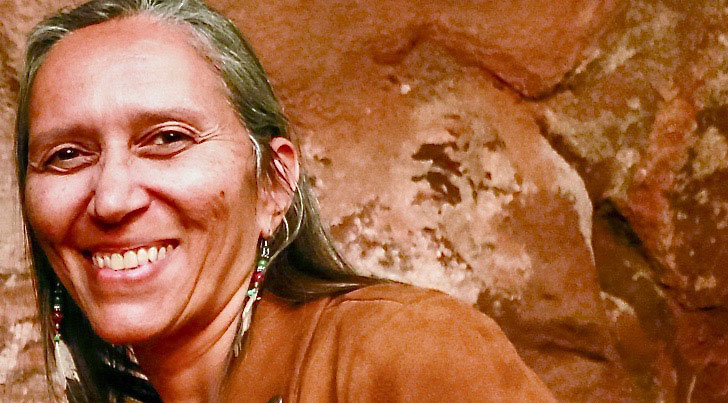The Founder of the Her Many Voices Foundation (HMVF), Alicia Fall is a TEDx Talk presenter (The Art of Igniting Action), educator, performing artist and public speaker on humanitarian issues for more than 30 years. Fall’s Foundation spearheads a pioneering hemp project that is developing a sustainable crop and building product for Haiti’s besieged yet resilient population.
HempToday: How would you describe things in Haiti at the moment, post the hurricanes of 2016 and the 2010 quake?
Alicia Fall: I get updates almost daily from our Projects Coordinator in Haiti. What I can say is the people continue to have an indomitable spirit of hope in the face of natural and unnatural disasters. That’s the positive. The reality is that since the quake and post 2016’s three hurricanes, there’s an unrest in the streets. People are frustrated and rightfully so. They’re sick of lip service given to them on promises of life improvements: Promises of work, promises of food security, medical attention and education for their children.
University students are tired of repeatedly having doors locked because of violent protests in the streets. They’ve been promised a lot, yet in 8 years little has changed for the majority of Haitians. One disaster after another and like in most countries, political divisiveness, have taken their toll on a very strong and resilient people.
What we have personally experienced is more tension in the air, more violence in the streets, more gang activity. When people become desperate the climate changes. And desperate actions are taken when the feeling is no action is taken by authorities to improve their circumstance. At the end of the day women still need to feed their children, men still need work and people still need more than hope. They need practical responses. That’s where Her Many Voices Foundation comes in. We provide practical education for women, children and men in Haiti in the belief that it will improve, at least, their individual worlds. Then they can pass that knowledge on to the next. It takes a collective effort to make big change. We are excited to be leading the way to a more sustainable future through our hemp project.
HT: What’s the role of hemp in meeting the goals of the Her Many Voices Foundation?
AF: HMVF is founded on a profound respect for importance of Mother Earth. Like most mothers she gives us everything we need and asks little in return. Our mission is to move our passions to purpose for the betterment of women, children and our Mother Earth.
Hemp is a high yield, low resource consuming crop. Our projects in Haiti will not only nourish back the soil in areas of a greatly deforested country; it will allow the people to yield hemp milk, seed and flour to ease hunger and lead to hempcrete building materials to create structures, like much needed toilets, within six months of planting. The difference this will make for the people in the communities we work with is hugely impactful.
HT: What are the challenges to getting funding to carry out the mission of the Foundation? How are you addressing that?
AF: In a world where there’s so much need yet financial limits for the 99% of us on the planet, many people are exhausted by the constant ask of support, no matter what the cause. Donor fatigue is a real thing. And when it comes to projects in Haiti, people see things differently.
Many people think “Oh they received all that money. They’re OK, now,” without understanding the history of a people, its country and all its natural disasters faced on a regular basis. HMVF is working to diversify our funding streams. Gratefully, we currently have a very committed individual donor base. We are seeking venture capital for our hemp projects. For 2019 we are identifying new foundations to apply to for grants and have been accepted to the Colorado Gives Fund.
HT: What are the respective and different challenges to providing services for women and children in developing countries compared to what you do for low-income U.S. households?
AF: In the U.S., food insecurity means people can’t afford to buy food. In a place like Haiti, food insecurity means the crops have too little water, they dry up and there is no food available. Our work in Haiti requires us to address more of the basic survival needs of the people with whom we are working as part of achieving our overall mission. However in both situations, food insecurity is a real issue for the people we serve.
In the U.S. we can drive a truck load of food and resources to just about any location, confident we will safety arrive with nothing more than a driver. Working in developing countries, security is our greatest challenge and also not being taxed for bringing physical resources into the country.
When we first started working in Haiti we usually had to pay for safe passage no matter where we went. Today, eight years later, we have strong community support yet getting from point A to B can still be a challenge. I’ve come to look at it as creating more job opportunity as well as a bonding opportunity with people whose sole purpose is to keep us safe. That’s not such a bad thing.
HT: What are your goals for Her Many Voices for the next five years?
AF: We are changing the world one person at a time by building solid relationships. In five years we will be 13 years working with the village of Trou ChouChou and with Wynne Farm Ecological Nature Reserve. We’ll be operating and serving the community with no disruptions in service; building safe, sanitary toilets, homes and schools, and providing food supplementation to the local community. We’ll be teaching local and international visitors how to sustainably grow and harvest hemp in Haiti, and expanding our production and programs in the U.S.

